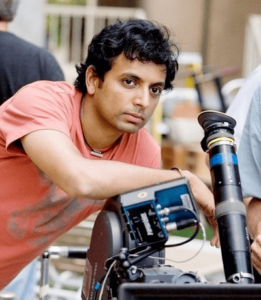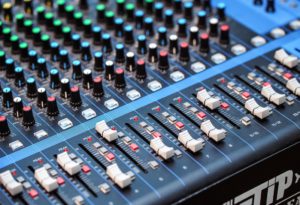Voice acting can be the perfect job if you have promising acting talents, impressive voice modulations, and consistent efforts to hone your voice based on situations. It’s no longer a distant dream. Here we bring down the easiest and quick ways to better your skills and find ways to get settled in your dream job. Scroll down to learn more about the voice acting industry and a voice actor’s various appearances!

What is Voice Acting?
Voice acting is the art of performing through voice to portray a character, mimic voices, add life to on-screen conversations, or provide information to an audience. Voice actors and actresses are also described as voice artists, voice talent, voiceover artists, or voiceover talent.
As voice actors are rarely seen on-screen, their sole means of expressing their emotions is through their voice. Therefore, voice actors must train and practice meticulously to provide the most remarkable performance possible, constantly mastering their vocal skills.
What is the Job of a Voice Actor?
Animated films, off-stage, off-screen, or non-visible characters in feature films, dubbed foreign-language films, anime, television shows, video games, cartoons, documentaries, commercials, audiobooks, radio dramas and comedies, amusement rides, theater productions, puppet shows, and audio games are all examples of voice work. Pre-recorded and automated announcements, a part of everyday modern life in places like shops, elevators, waiting rooms, and public transportation, also feature voice actors. When playing a fictitious character, a voice actor’s part may include singing, though a different performer is occasionally engaged as the character’s singing voice.
To meet the required grades for the show or soundbite, voice actors must:
- Shift inflections
- Present diverse delivery
- Enunciate precisely
- Adjust their tone
Voiceover actors find expression in the following fields:
- Cartoons
- Anime
- Video games
- Advertising
- Narration
- Audiobooks
- Dubbing
- E-learning
- Promos
In addition, many professional voiceover artists have a soundproof home studio where they may record, audition, or practice.
How to Get a Job in the Field of Voice Acting
What are the Advantages of Becoming a Voice Actor?
A profession in the voiceover market is highly competitive, and job seekers can reap the benefits in the following ways:
Work from Home
Many voice acting jobs can be recorded in a home studio, allowing you to work from home. As a result, this cuts down your traveling and parking expenses. Ensure you own a good microphone to record voice in high quality.

Flexible Working Hours
Some voice actors begin working part-time while financially supporting themselves with their day shifts. Part-time voice acting helps you stay flexible with the work shifts, stay relaxed, and create a plan that best matches your needs.
You are Your Boss
Working at a voice-acting job allows you to be your boss. You can control your schedule and the appointments you accept or reject. Once you establish a regular work schedule, you will be able to be more selective about the voice-acting jobs you take on.
Well Paid
Getting placed as a voice actor on national radio or television can be a quick leap in your career, attracting hundreds and thousands of dollars.
What are the Drawbacks of Becoming a Voice Actor?
While performing the job of voice acting has numerous advantages, it also has certain disadvantages, such as:
Unstable Work
Finding consistent employment in the voice-acting industry can be difficult because, like traditional acting, it is a highly sought-after profession. As the industry is primarily freelancing, you might not get any if you do not hustle to find work. To secure the correct assignments as they develop their skills, voiceover artists must network and form solid working relationships.
Competitive
As there is so much competition from aspiring, intermediate, and veteran talent, settling into a voice acting job might be challenging. Even established voice actors go through periods where they cannot find employment. In addition, before the final record, you may have to go on dozens of auditions. Therefore be prepared for numerous attempts and multiple narratives. Also, job seekers must be ready to be rejected.
Expensive Setups
It is beneficial to have an at-home recording studio setup, whether it is for voice-acting auditions or recording lines for a voice-acting job. Having a soundproof booth and buying high-quality recording equipment and software can be expensive. Also, knowing its usage is time-consuming. Especially for vocalists who are not tech-savvy, putting together the proper setup takes time and dedication.
It can Test Your Vocal Strength
Voice actors must take special precautions to keep their voices in good working order. Any vocal strain, which can seriously affect a voice actor’s ability to utilize their voice correctly, must be avoided or managed.
How to Get into Voice Acting?
To become a successful voice actor, master your skills by taking a glance at the tips that we have shared here:
Take Acting Classes
Voice acting is more than just reading words from a page; it also necessitates acting ability.
Your voice has to be soothing, sad, rejoicing, and filled with revenge, meeting all emotional needs. A voice-acting coach will aid you in refining your skills in breathing, pronunciation, articulation, and dialogue delivery, bringing the best to the scene. Taking acting lessons with an acting coach sharpens your talents, making you more confident and perform like a natural artist.
Study Voice Actors’ Work
- Listen to your favorite professional voice actor by repeatedly hearing their voice in advertisements, cartoons, or video games.
- Note how they differ in their tone and inflections and pay attention to their choices in their delivery.
- In addition, listen to voice-acting podcasts and learn how expert voice actors approach various roles.
Record a Voice-Acting Demo
A voiceover demo reel and an actor’s sizzle reel are the same, but the former comes without images. A voice artist’s demo reel features a variety of lines and monologues done in different voices. They can be for various purposes, from commercial needs to character portrayal. You can upload these audio samples on sites or send them to talent agencies that may help you find your job or hire you for their client’s promotional purposes.
Go to Voice Acting Auditions
Auditions play a vital role in finding your place in voice acting. Know the auditions’ requirements and choose what best suits your skills and efficiency. This can avoid unnecessary rejection and save time. Surf the Internet to find ways and means to submit your audio samples. Before recording your audition:
- Know your strength and skills.
- Review the character breakdowns.
- Practice good pronunciation.
- Avoid smoking or consuming acidic beverages.
How to Submit Entries in Voice Acting Auditions
Practice Voice Acting
You should practice if you are not in a professional recording studio. However, many professional voiceover performers have home studios where they may record voiceover acting auditions and practice recording. Practice and listen back to your recordings once you have finished your setup. By practicing, you may build a professional-sounding voice that will appeal to casting directors and audiences.
Networking
Networking is an essential step in your voice acting career. Finding a job, making friends, and learning more about the industry are all interconnected; these factors help you get a job quickly. It is vital to help your connections in any manner possible because networking is a two-way street. Please make the most of your offer to show your contacts that you care about their success. Then, when the time comes, they will come to your rescue.
The Scoring Card in Voice Acting
The most effective technique to improve is to be in your recording booth as much as possible. Then, listen back and rate yourself according to the five C’s every time you do so:
Control
The greater the command of your voice, the better. The more you can control your voice, whether regulating your breathing to deliver extended, emotive passages, manipulating your accent or doing character voices, the more successful you will be as a voice actor.
Consistency
In many cases, directors only require one or two lines to be modified from entire paragraphs. You must be able to deliver your lines perfectly in each take, nailing the director’s requests.
Connection
To prevent becoming flat, you must connect with the story and the character. Ensure you are emotionally engaged with the text’s emotional core and feel the context. Your voice will be more enticing than you think.
Cleanliness
Our mouths generate strange squishing sounds as they open and close, and as strange as it sounds here, it is even more fun when you hear it. As the microphone is so close to your mouth, you will need to gently open and close your mouth, so we don’t notice any distracting noises in the recording.
Clarity
You should communicate clearly and understandably. Please do not murmur. Be sure to work on highly emotional scenes because speaking clearly can be a little more challenging.

Salary of Voice Actors
The average wage for a voice actor is $200-300 per hour. In the beginning, they make around $10k-20k per year, so don’t quit your day job just yet. It seems logical to make the shift to full-time work gradually, which will likely take at least a year or two. The average voice acting wage is around $50-60k in your second year, and at that time, you’ll be able to start upping your rates and pushing your revenue higher and higher! After completing the math, it comes to around $4k-6k every month. It depends, but most jobs might take anywhere from 1 to 5 hours, equating to $200-1000 for each gig at $200/hr. Many voice actors bill by the hour, while others bill by the project. It’s entirely up to you and what makes you feel most at ease.
As a well-known voice actor, you can earn millions of dollars if you keep working at it and start earning important roles to receive residual revenue from airing productions. Of course, to get to this level, you must love what you do and work at it for many years, but it is entirely achievable and has been accomplished by numerous actors.
Different Types of Voice Acting Jobs
There are various types of voice-acting jobs. They are:
Voice Acting in Films
Movie voiceovers, dubbed foreign language films, animated (anime) films, and documentary voiceovers are all examples of this. Documentaries usually require a clear, cinematic voice, but animated and narrative films need lively, expressive voices.
Voice Acting in Television Programs
This comprises voice-overs for TV shows, promos, advertisements, and documentaries. You will be able to see a screen where you can see the film while you record for television and film work to verify your voice is appropriately matched with the images.
Voice Acting in Animated Films
Voice Acting on Radio
This includes radio advertising, promos, and occasional audio dramas.
Tom Hiddleston Voice Acting in Radio
Voice Acting in Video Games
Most video games include talking characters, and you can play those characters’ voices (or the announcements that set the stage for the scene or video game level).
Voice Acting in Podcasts and Audiobooks
Thousands of books are written each year, and many self-published authors require voice actors to record the audio version of their books for platforms such as www.audible.com Some bloggers hire voice actors to record their blog entries and turn them into podcasts.
Voice Acting in Phone Systems and Announcements
Companies utilize voice actors to greet their customers, and subway stations and other public venues use voice actors for essential announcements, even though computer-generated voices are becoming increasingly popular.
Voice Acting in Live Events and Learning
Announcers are needed in theaters to encourage the audience to turn off their cellphones, and industries (in-house training videos for companies) require announcers to clarify what employees are viewing in their training movies.
Difference Between Voice Acting and Voiceover
Voiceover refers to stuff that is not visible on screen, but voice acting is when a character’s voice is heard on screen. For example, consider a documentary or a scene in which someone is thinking about something, and you do not see the actor’s lips move but hear words — that’s voiceover. Voice acting is when you find a character speaking while hearing their voice, such as in a cartoon.
Difference Between Voice Acting and Voice Over
How to Setup a Home Studio for Voice Acting?
It would help if you always made crystal clear professional recordings. Record your audio in an environment free from background noise and echoes. However, you do not need to invest a fortune to set up a professional recording studio. All you need is a closet and an excellent microphone.
Here’s how to build a professional recording booth on a shoestring budget:

A Quiet and a Small Place
Background noises such as traffic, air conditioners, clocks, appliances, people, dogs, and so on must be completely absent. Bedroom closets are ideal because you can close both the bedroom and closet doors, providing a double sound barrier. You can also leave your clothes hanging inside because they will absorb sound. If you do not have access to a closet, hang blankets or sheets everywhere to prevent echo.
A Good Studio Condenser Microphone with a Pop Filter
Using a studio condenser microphone is recommended, and a pop filter is essential for clear audio. A pop filter is positioned in front of the microphone to prevent the microphone from picking up the wind from your mouth when you utter words beginning with the letter “p.” In addition, you should place the microphone such that you may record while standing (sitting can cause you not to speak as clearly). A competent studio microphone, a pop filter, and a microphone stand would likely cost between $100 and $200.
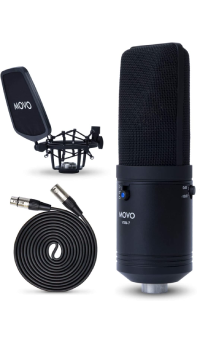
A Computer with Voice Recording Software
You will need adequate hard drive space on your computer to keep all of your audio files and some simple software to edit the audio before sending it out. When setting up, avoid placing your computer base in the same room as your microphone because the microphone will pick up computer fan noises. Here are some options for audio recording software:


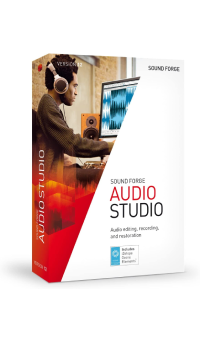
GarageBand (included for free on Macs)
A Monitor with a Long Wire
Your computer screen should be placed in the recording room so you can keep an eye on it and control it during recording sessions, so you will need a wire which is long enough to reach the computer outside the recording booth. A wireless mouse and keyboard will remove the need for long cables.



Microphone Connection to the Computer
As you will need a long enough line to reach the computer outside the recording booth so you can view and operate it during sessions, your computer screen must be in the recording room. Using a wireless keyboard and mouse eliminates the need for numerous long cords.
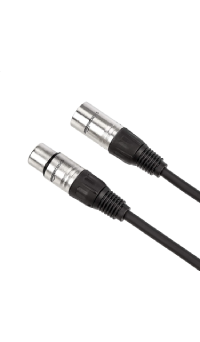
Closed-Back Headphones
To guarantee that your performance is timed correctly, you frequently need to listen to music or specific noises, so invest in a nice pair of closed-back headphones that filter out all sound.

Pro Tips
- Record your audio sample that covers various modulations and articulations of your voice and best showcases your skills.
- Discover and find your signature voice.
- Analyze the scripts, delve into the characters by taking their shoes, and deliver the voice like a natural performer.
- Warm up your voice before recording sessions
- Have minimum ambient noise around you while recording
- Get feedback from your friends and acquaintances on your voices.
- Be well-equipped with all the essential equipment discussed earlier to get the best audio sample of your voice. This gives a professional touch to your audio quality besides your skills.
Conclusion
To pursue voice acting, you must have a positive attitude. For the first 1-2 years, you are in for a long, arduous road, so trust in yourself and keep trying to improve, ensuring that you give an excellent product to your clients every time. Keep learning from voice-acting auditions. You can also join voice acting classes to hone your skills. If you keep striving toward voice-acting jobs, you will get an opportunity.
Do not be one of those who give up before achieving feats. Also, do not get discouraged by the rejection. It’s all part of the journey, so keep working consistently to become a professional voice actor.










